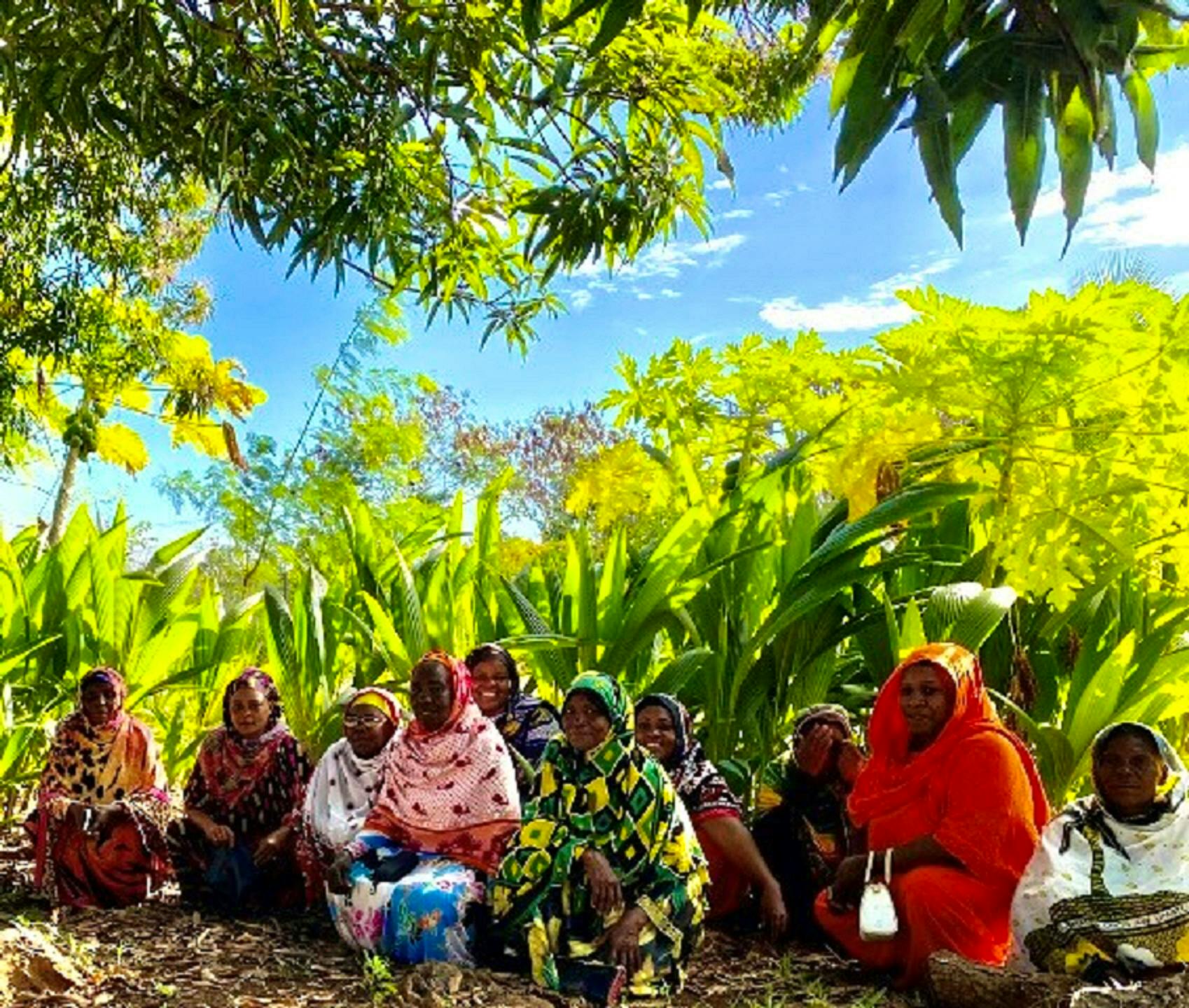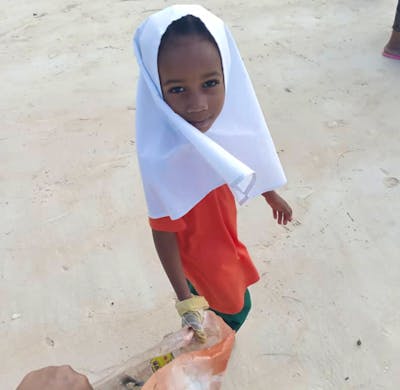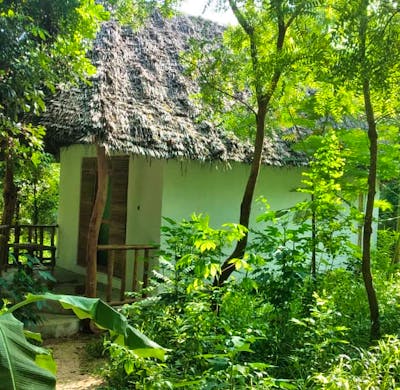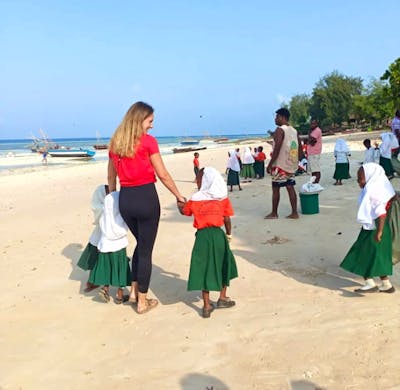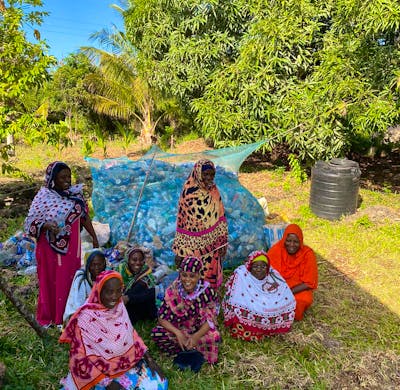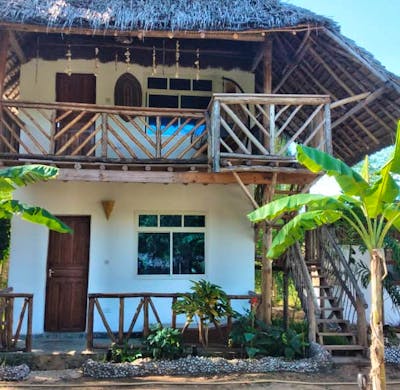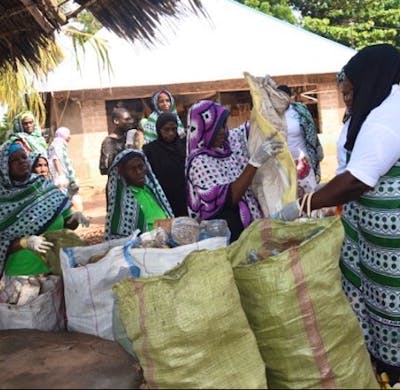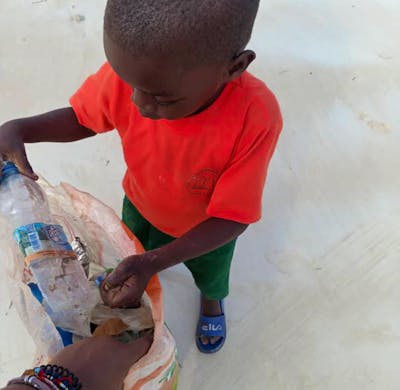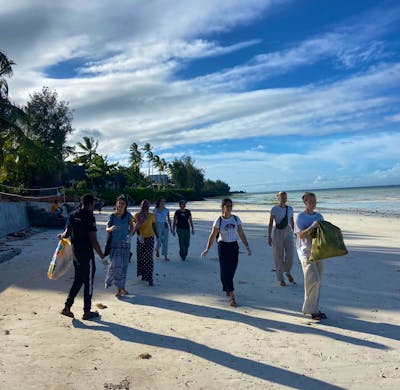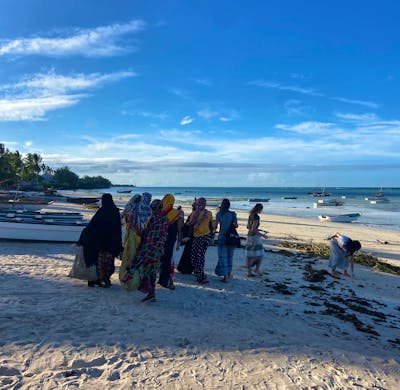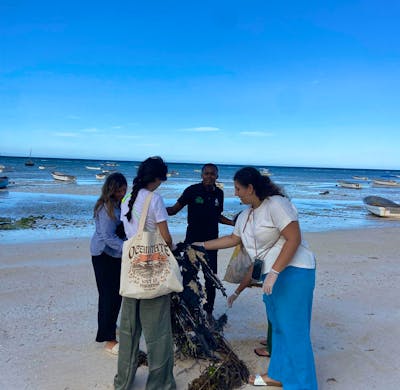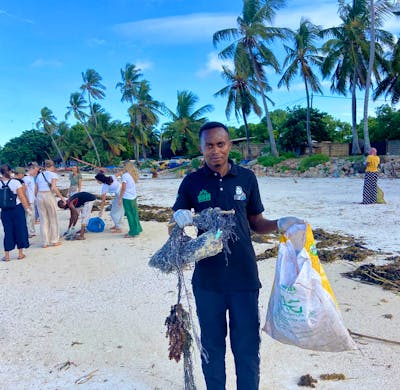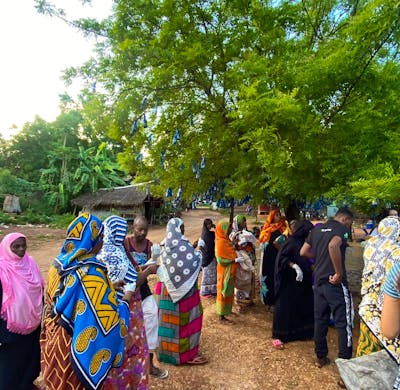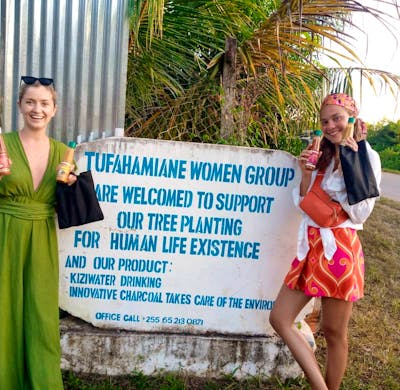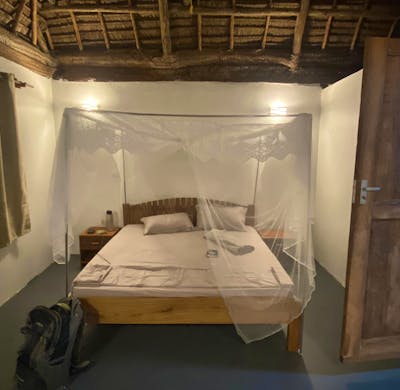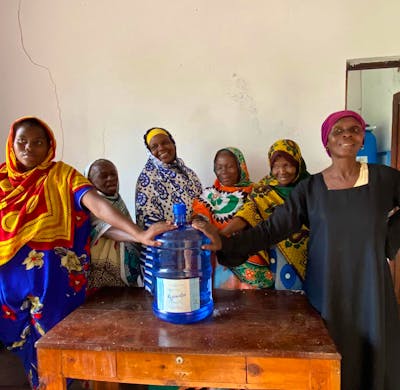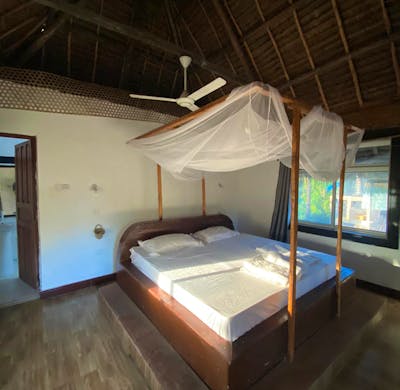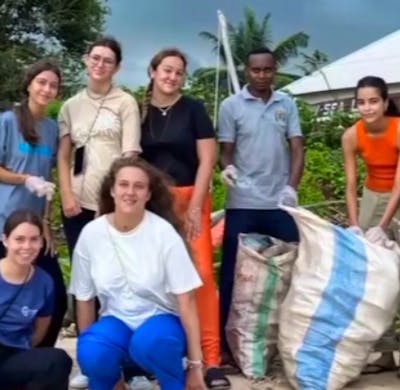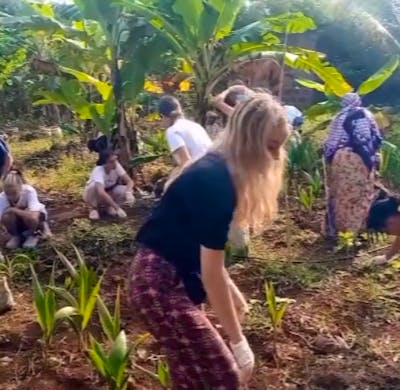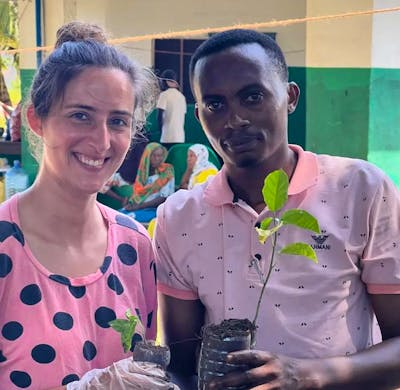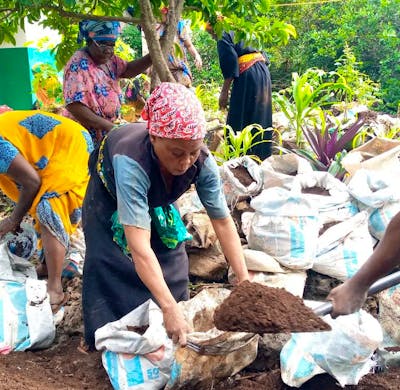Our project in Zanzibar focuses on addressing environmental issues and promoting women's empowerment in a holistic manner. These two themes are deeply interconnected through a series of projects that not only benefit the local women's group but also serve as income-generating activities, contributing to sustainable development in the region.
One of the primary environmental challenges we address is plastic pollution, which poses a significant threat to Zanzibar's marine life and coastal ecosystems. To combat this issue, the women's group takes proactive steps such as organizing regular beach cleanups and conducting educational workshops to raise awareness about the importance of environmental conservation.
Additionally, access to clean drinking water is a pressing issue exacerbated by the island's geographical constraints and rising sea levels. To address this, the women's group has installed water filtration systems and provides clean water to the community. Through innovative initiatives like selling water to tourists and hotels and implementing a refill system, they not only generate income but also actively reduce single-use plastic waste.
Furthermore, the women's group is deeply involved in tree planting initiatives to counter deforestation. The fruits and herbs harvested from these trees are utilized to produce eco-friendly products like soaps and shampoos, creating additional employment opportunities for women. Moreover, the group supports local kindergartens by providing them with homegrown fruits, promoting healthy living and sustainability from a young age.
Volunteers play a crucial role in all these projects, actively participating in tasks such as water bottling, plastic waste collection, tree planting, workshop preparation, and marketing efforts. The women's group warmly welcomes new project ideas and values the input and contributions of volunteers, having previously implemented several successful suggestions from them.
Situated in the serene fishing village of Kizimkazi in southern Zanzibar, our project location offers volunteers a unique opportunity to immerse themselves in the local community. The volunteer house, located just a short walk from the women's group headquarters and close to the beach, provides a tranquil setting surrounded by lush tropical vegetation. Volunteers will primarily collaborate with members of the women's group and project manager Bonnie, fostering open-mindedness and a deep engagement with the community.
Plant a Palmtree
Planting palms has several positive effects on the environment. Firstly, they contribute to
biodiversity conservation by creating habitats for various plant and animal species. Secondly,
they play a crucial role in the carbon cycle by absorbing CO2 and producing oxygen, thus
improving air quality. Thirdly, palms can help prevent erosion and stabilize soil, as their root
systems assist in retaining water and protecting soil structure.
The women's group gains financial autonomy through the sale of palms, experiencing not
just economic success but also sustainable empowerment. The generated income provides
the women with financial independence, promotes self-determination, and enables active
participation in economic processes. The sale of palms serves as more than just a means of
income; it becomes an instrument for the sustainable empowerment of women within their
community.
The women's group is involved in not only selling palms but also cultivating and selling
vegetables. In addition to agricultural produce, they create sustainable products such as
soap and shampoo from various crops. These diverse activities not only provide a varied
source of income but also promote sustainable development. The women utilize their
agricultural knowledge not just for selling raw products but also for crafting
environmentally friendly goods, enhancing not only their economic stability but also
strengthening their community.
Beach Cleanup
Regular beach cleanups have a positive impact on the
environment by helping to reduce ocean pollution and protect
the marine ecosystem. Removing debris, especially plastic waste,
through beach cleanups contributes to preserving biodiversity
by safeguarding habitats for marine life. Furthermore, these
initiatives raise awareness within communities about
environmental issues, promoting eco-conscious behavior and
fostering long-term changes in waste management practices.
Over the past year, the participation in beach cleanups has
significantly increased, with a notable involvement from schools,
kindergartens, hotels, and restaurants. This surge in community
engagement has fostered a strong sense of togetherness. The
collective efforts of diverse groups working towards a cleaner
environment have not only contributed to a more pristine
coastline but have also cultivated a powerful sense of
community spirit.
Kiziwater
Kiziwater is a project that filters water, offering not just clean
drinking water but also establishing a source of income through
sales. The refill system helps decrease the use of single-us
bottles. Kiziwater originates from a natural groundwater source
and undergoes filtration without the use of electricity or
chemicals, employing a certified nanofilter.
This sustainable water source not only ensures purity but also
reflects an environmentally conscious approach. Moreover, the
sale of Kiziwater serves as a source of income for women,
contributing to their financial empowerment. It represents a
holistic initiative that combines ecological responsibility with
economic opportunities for the community.
The work within the women's group is characterized by the frequent implementation of new projects. We encourage all volunteers to contribute their ideas and skills. In the first few days, individual
discussions will be held with volunteers to explore the various opportunities for involvement. If you
have ideas, please feel free to share them with us, and together we can discuss how they could be
implemented.
Visa Requirements for
Volunteering in Zanzibar:
Tanzania offers two primary visa options – the Online Visa Platform and the On-Arrival Visa Platform. With the shift to the Online
Visa System, volunteers are advised to utilize the online platform for application, as visas are no longer issued at embassies.
Eligibility and Application Process: While the On-Arrival Visa is an option for certain nationalities,
volunteers are encouraged to apply online through the Official Tanzania Immigration website to streamline the process. Choosing the
Right Visa: Most volunteers will require an Ordinary Visa, suitable for tourism, leisure, and volunteering activities. American passport
holders must apply for a Multiple Entry Visa.
Prepare to pay the applicable visa fee, which varies depending on the type of visa you require. Ensure your passport is valid for at
least six months with sufficient unused visa pages before applying for a visa.
Medical Tips:
When traveling to Zanzibar, it's important to note that a yellow fever vaccination is no longer required for entry. However, it's
advisable to stay informed about the latest entry requirements and health regulations before your trip.
Regarding malaria prophylaxis, it's essential to emphasize that the decision to take preventive medication is a personal one and
should be discussed with a healthcare professional. Malaria prophylaxis may vary depending on individual risk factors, medical
history, and travel itinerary. Therefore, seeking advice from a medical expert before your trip is recommended to make an
informed decision.
In addition to malaria precautions, there are several general medical tips to consider while in Zanzibar:
- Stay hydrated: The tropical climate of Zanzibar can lead to increased perspiration and fluid loss. Drink plenty of bottled or
purified water to stay hydrated, especially during outdoor activities.
- Protect yourself from the sun: Zanzibar experiences strong sunlight year-round. Use sunscreen with a high SPF, wear protective
clothing, and seek shade during peak sunlight hours to prevent sunburn and heat-related illnesses.
- Prevent insect bites: Mosquitoes are prevalent in Zanzibar, particularly during the rainy season. Wear long-sleeved clothing and
pants at night, and sleep under a mosquito net to reduce the risk of mosquito-borne illnesses. Mosquito nets are provided in the
volunteer house.
- Seek medical attention if needed: If you experience any symptoms of illness or injury during your stay in Zanzibar, seek medical
attention promptly. There are healthcare facilities and clinics available on the island, but the quality and availability of services
may vary.
By following these general medical tips and staying proactive about your health, you can minimize the risk of encountering healthrelated issues during your time in Zanzibar and enjoy a safe and memorable trip.
What else?
It is not necessary to bring gifts for the locals when visiting Zanzibar. However, if volunteers wish to bring something, the residents
of Kizimkazi, for example, greatly appreciate clothing donations for children. Before embarking on your journey, you can also support
the project by promoting it on social media platforms.
And most importantly, it will be an amazing
experience, so be open, have fun, and enjoy every
moment!
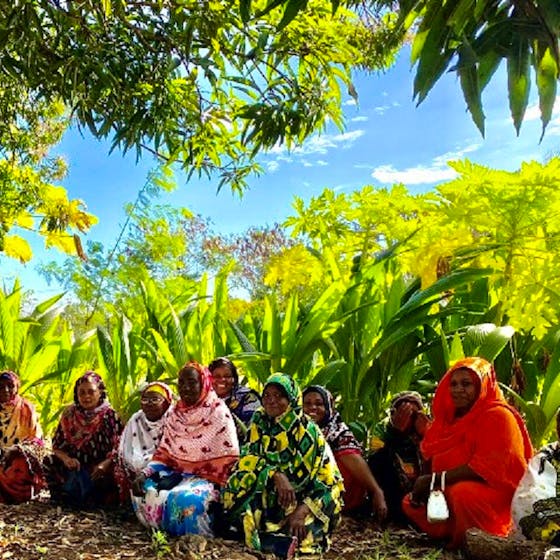
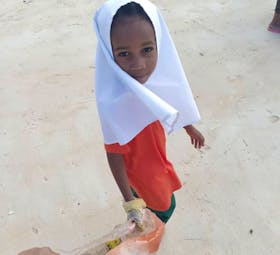
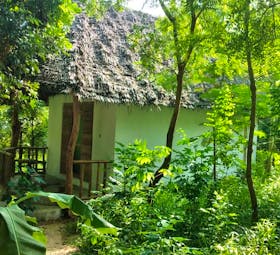
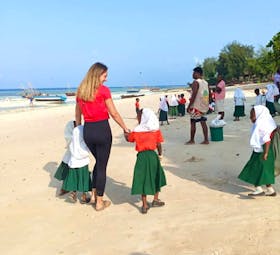
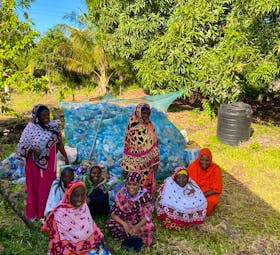
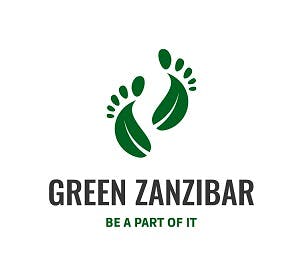
 4.5
4.5

